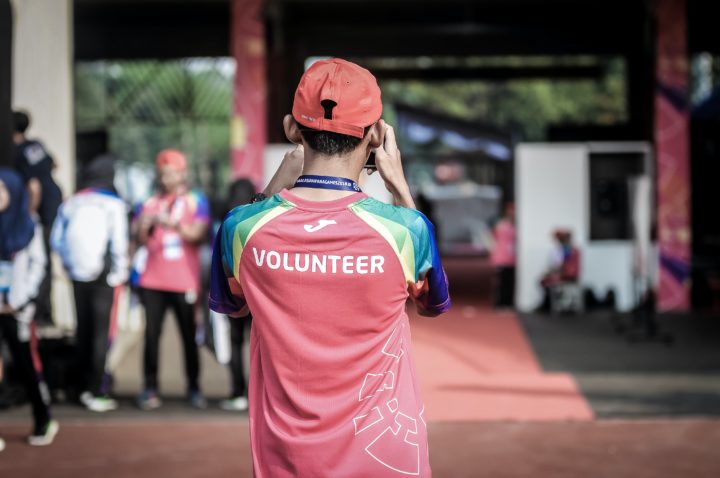Getting ready to welcome volunteers

Talk to others
Welcoming volunteers to your organisation can bring many benefits, but it also involves a commitment to create meaningful and enjoyable opportunities. This will involve the use of resources – time and money – so you need to be sure that you have capacity to do this well.
Take time to talk to the people in your organisation who will be impacted by the introduction of volunteers. It is also important that you have the support of your board of trustees or management committee. Make sure you understand what is needed.

What do volunteer centres do in Wales?
To get an understanding of the help that is available locally take a look at our information sheet What do volunteer centres do in Wales?
Create your volunteer strategy
Once you have talked to people and have a collective agreement as to why and how you will involve volunteers you can write this down and create your volunteer strategy.
A volunteer strategy sets out what you want to achieve with volunteering and how volunteers will contribute to the organisation’s aims. It also sets out the broad principles that you will use to find, recruit and support volunteers. (The detail about how you approach this will be covered in your volunteering policy which we cover in our Create your volunteer policy section).

Developing a Volunteer Strategy
We have an information sheet Developing a Volunteer Strategy which sets out the key questions you should work through to create your strategy.
Understand the law
There are a number of legal considerations that apply to the relationship between an organisation and its volunteers. While volunteers do not have a particular legal status in UK law (so do not benefit from the same protection as employees) you will need to take the interests of volunteers into account when creating your policies and procedures.
There are some key areas where you have a responsibility to volunteers, or where you should consider the legal situation to develop best practice in your volunteer management:
- Health and safety – you will have a responsibility to volunteers either under health and safety legislation or a general duty of care
- Data protection – you must comply with data protection legislation when managing volunteers’ personal data
- Safeguarding – your safeguarding responsibilities extend to volunteers
- Copyright – you need to understand the law relating to the creation of content by volunteers
- Expenses and benefits in kind – it is important to reimburse volunteers for their actual costs, but you need to understand the rules to avoid create any kind of contractual relationship
Equality and Diversity
The Equality Act 2010 is designed to address unfair discrimination, harassment and victimisation. It provides a legal framework to protect individuals from unfair treatment and promotes a fair and more equal society. You need to understand how these provisions will apply to volunteers within your organisation.
Some volunteers may have a contract to personally do work for you and receive more than just their out-of-pocket expenses in exchange. If this applies to your volunteers, then the Equality Act 2010 may protect them as if they are employed by you, and you should read the Equality and Human Rights Commission guide to what equality law means for employers.
If this does not apply to your volunteers, then it is possible that, when you are providing a volunteering opportunity for someone, this counts as providing them with a service.
This means that the Equality Act 2010 applies to your volunteers just as much as it does to your other service users or clients. You should avoid unlawful discrimination in how you treat volunteers.
Whatever their legal status, it is likely that a volunteer delivering your service would be acting on your behalf if they unlawfully discriminated against a client or service user. If so, you could be held legally responsible for what they did. This is true, even if you are not aware of the conduct and you did not approve it.
This means that it is important to follow equalities legislation in your treatment of volunteers, and in the way that volunteers deliver your organisation’s activities.
More information
For an introduction to the legal issues that you should think about take a look at our information sheet Volunteers and the Law.
You can find more information on data protection, health and safety and drafting policies in our Running your organisation section.
Our information sheet Keeping Volunteers Safe and our Safeguarding section give more information on the steps that you should take to keep volunteers safe.
We also have an information sheet to help you with Volunteer Expenses.
There is more information on the Equality Act and how to create an inclusive organisation for volunteers in our information sheet Equality, Diversity and Inclusion in Volunteering.
Other sources of help
NCVO have a detailed section on their website that introduces the legal responsibilities of volunteer-involving organisations.
Check your insurance
You need to make sure that your volunteers are covered on your insurance, and that you understand and communicate any limitations on the level of cover.
Our information sheet Volunteers and Insurance outlines the different types of insurance that can cover volunteers and where else you can go for further information.
You can also take a look at our Running your organisation section which contain some key points about risk management and insurance.
Create your volunteer policy
A volunteer policy sets out the principles and practice by which you involve volunteers in your organisation. It is relevant to volunteers, trustees and staff (if you have them). The policy builds on your overarching volunteer strategy to clarify the roles and responsibilities to ensure the highest standards are maintained in relation to the management of volunteers.
A volunteer policy should include:
- how your organisation will recruit volunteers
- how it will make sure it treats all volunteers with fairness and respect
- the volunteer induction and training process
- how it will pay volunteer expenses
- the supervision and support process for volunteers
- problem solving and complaints procedures for volunteers.
Your volunteer policy should also link to other key organisational policies that are relevant to volunteers – for example health and safety and data protection.
We have created a guidance for Creating a Volunteering Policy and a template Volunteering Policy which you can adapt for your organisation. This policy is written as if you have a staff member who will take the lead in coordinating volunteers. If you don’t have a member of staff you can take on this role then you should appoint another volunteer or a trustee to carry out this role and amend the policy to reflect this. There may be some things in the policy that you feel your organisation can’t commit to yet, and that’s fine, but the template shows you the things that you should work towards so that you follow best practice with volunteer management.
Create volunteer role descriptions
It is good practice to create role descriptions for all of your volunteer opportunities. This ensures that there is a clear understanding of what the role involves. Role descriptions should be consistent across your organisation and follow your volunteer policy.
Remember that you want your volunteer opportunity to be attractive to volunteers, so it is important to create roles that are flexible. Try not to be too rigid in the time commitment that you are asking for (unless it is really essential to the role) and be ready to make adjustments to the role to meet the interests, abilities and aspirations of your individual volunteers.
Our information sheet Developing a Volunteering Strategy contains a section on role descriptions, and you can use our Volunteer Role Description Template to create the descriptions for your volunteering opportunities.
You should think about how your volunteer opportunities will attract people of different age, gender, background, ability and interest. Our information sheet Equality Diversity and Inclusion in Volunteering will help you with this.

Understanding Volunteering
We also have two free e-learning courses that provide an overview of the key issues that you need to cover when introducing volunteers to your organisation.
Other sources of help
The Investing in Volunteers Standard is a useful guide to good practice in volunteering and volunteer management which is free to download

